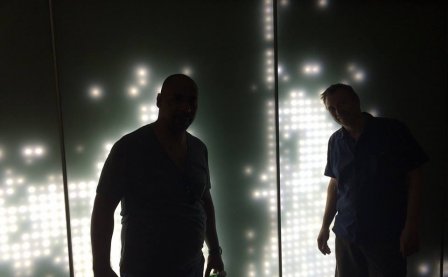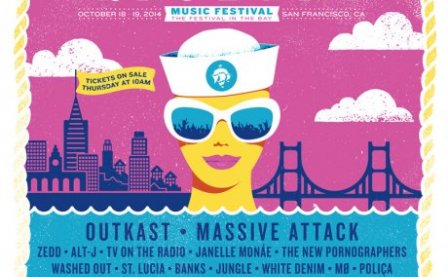As trip-hop enters its third decade in existence, it drags along a trail of both detractors and promoters. With staples like Nightmares on Wax putting out mediocre (at best) attempts to relive past glory, there are still frontrunners carrying on the name of the hazy, stoned-beat tradition — namely Portishead and Massive Attack, Bristol natives who helped draw the genre’s blueprint. But they’re not without critics. In particular, Portishead’s 2008 release Third was met with avid critical-acclaim for its growth away from the genre, but it also received a backlashing from fans stuck on the group’s classic trip-hop sound. With Heligoland, it’s safe to say the response to Massive Attack’s fifth may just be the opposite.
While Daddy G and 3D aren’t treading far from the psychedelic, trance-induced sounds of Blue Lines or Mezzanine, their craft is always full of meticulous explorations of post-trip-hop subgenres led by the inspiration of whichever guest vocalist is behind the mic. Indeed, the beauty of their production is that it molds to specific voices, like the flourishing acoustic guitars and exuberant orchestrations that complement Damon Albarn’s slow drawl on “Saturday Came Slow” or the handclaps and vibrant bell-kits accentuating Hope Sandoval’s sultry voice on “Paradise Circus.” One of the best examples is lead-off track “Pray for Rain,” which features one of today’s most prolific voices, TV on the Radio’s Tunde Adebimpe. Built around bass drones, militaristic beats, and morose lyricism, the track showcases one of Adebimpe’s strongest (and darkest) vocal performances across the board.
When collaborating with Massive Attack, it’s usually one of long-standing development, but the results can be hit or miss. Roots-reggae legend Horace Andy is so remarkably confident and animated on “Girl I Love You” it’s not surprising that the song, the most “traditional”-sounding on the album, is one of the strongest. On the other hand, the tracks with songstress Martina Topley-Bird pale in comparison, weakening the album overall. Both efforts — “Babel” and “Psyche” — feel like stylistic experiments that Massive Attack made and decided to keep just for the hell of it, ultimately doing disservice to both themselves and Topley-Bird.
It’s hard to tell whether or not Heligoland will stand up next to the band’s discography. Sure, it’s a logical progression from 100th Window, but because their progressions are neither commonsense nor predictable, it’s difficult to predict how it will hold up in terms of posterity. While Heligoland feels like it got lost somewhere during the process of its creation (it’s been 7 years now), it at least proves that Massive Attack are one of trip-hop’s last hopes of entering a fourth decade.
More about: Massive Attack




